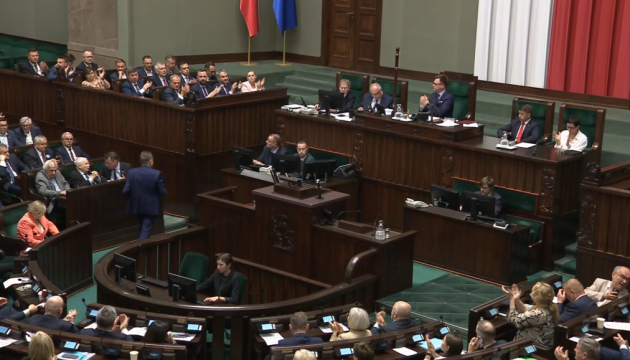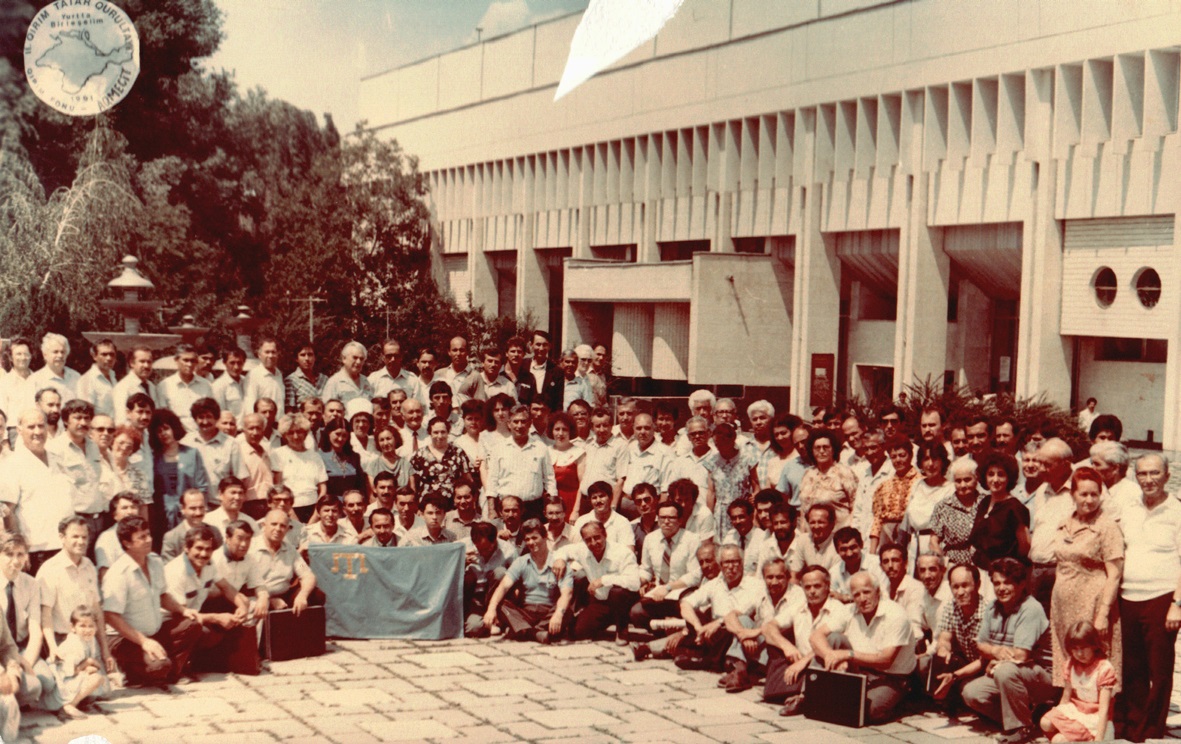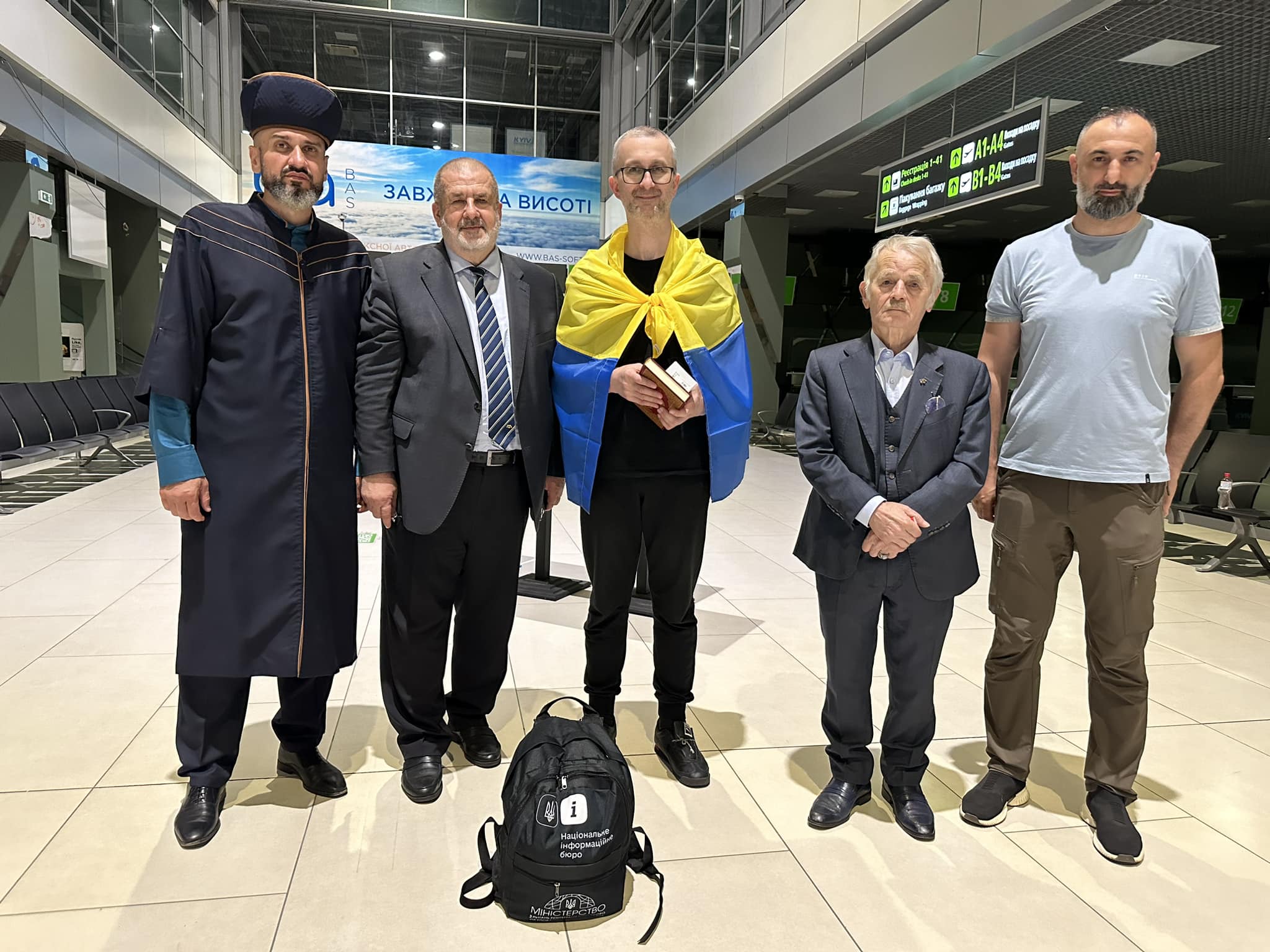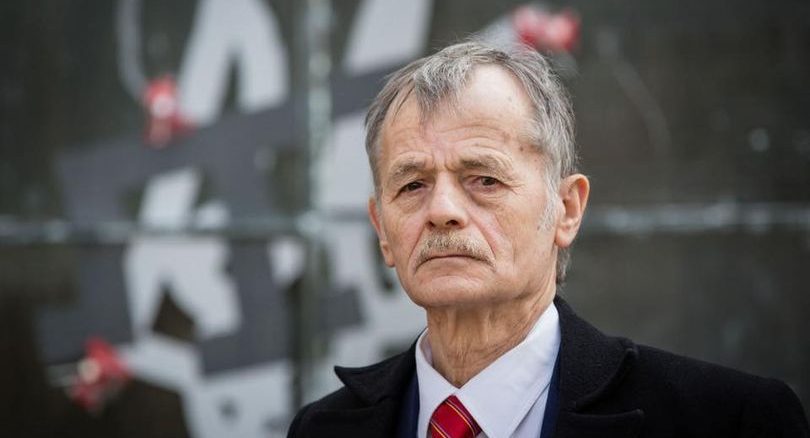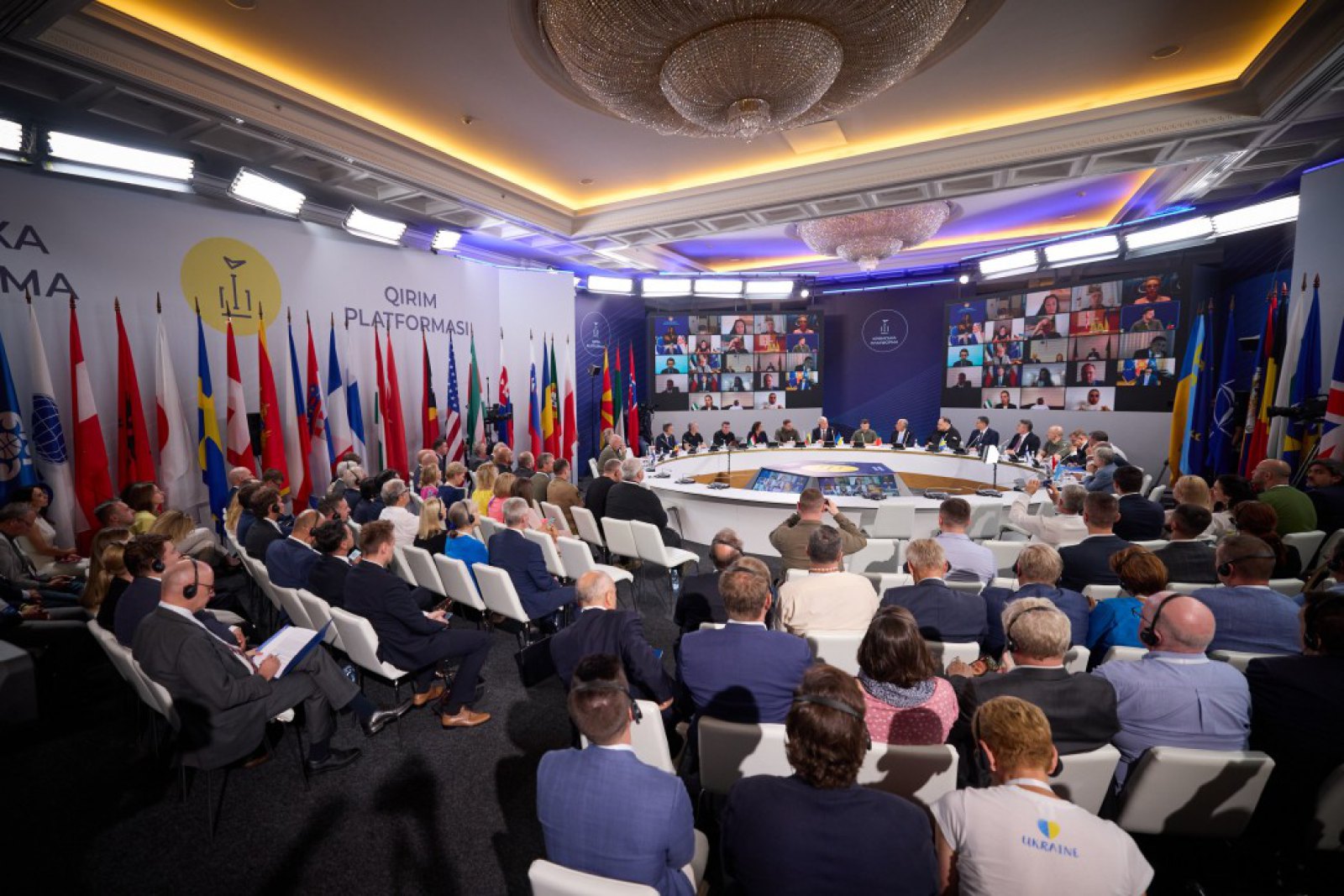Mustafa Jemilev: It Is an Absurd to Decide Issue of Belonging of Any Territory, Region or Settlement to Any State on «Referendum»
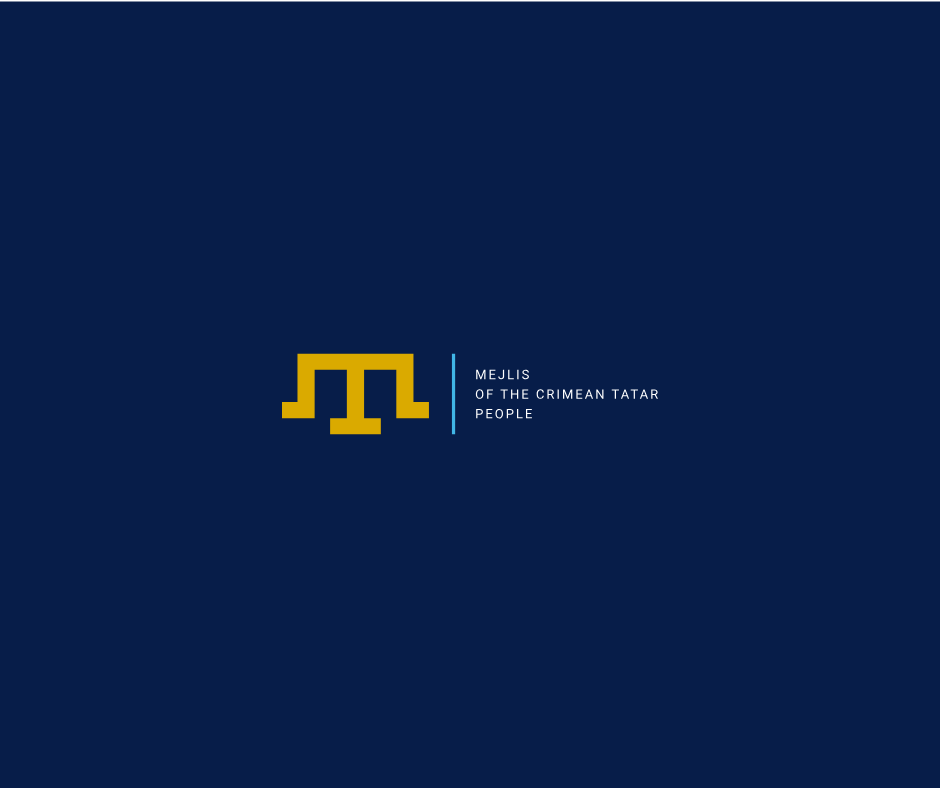
On March 31, 2014, the UN Security Council convened an Arria-formula meeting in New-York. This kind of meetings is used to consider the complicated political issues behind closed doors.
The Government of Lithuania invited Mustafa Jemilev, Leader of the Crimean Tatar people, MP of Ukraine and Valentina Samar, well-known Crimean journalist, chief editor of the Center for Investigative Journalism to take part in the UN Security Council.
The main topic of the meeting was consideration of the critical situation in Crimea.
Mustafa Jemilev opened the meeting and expressed his hope that the international community will take sufficiently effective measures to liberate our country from occupation and to prevent such aggressive actions against sovereign states.
Text of Mustafa Jemilev’s speech at closed meeting of the UN Security Council
in New-York, U.S., March 31, 2014
Dear ladies and gentlemen!
The dramatic events in Ukraine – the grave clashes between the people and the ruling regime on the Maidan, the overthrow of the corrupt Yanukovych clan by the protesting citizens and the following invasion of our territory by Russian troops, the occupation of Crimea, the holding of the so called ‘referendum’ by the occupying regime on the territory of the Autonomous Republic of Crimea and Sevastopol and the annexation of these territories to Russia have rightly attracted the focused attention and concern of the international community.
The main claim used to justify [the invasion] is, as we know, the assertion that an actual “Bandera-ist authority” had supposedly been established in Ukraine, which supposedly oppresses and discriminates against ethnic Russians. Of course, this is completely untrue. Firstly, there are a good number of people other nationalities in key positions in the new government, including Russians, Jews, Armenians and others. Nobody broke up the national parliament where, as you know, Russian and pro-Russian MPs, including a fairly large proportion of the pro-Russian Communists, were the majority.
But it was an especially cynical assertion that Russians were being harassed in Crimea, where the invasion by Russian troops actually happened.
I will cite just a few figures: 58% of the population of Crimea is ethnically Russian, about 24% are ethnically Ukrainian, most of whom can be counted as Russians as, due to Russification policies, rarely do any of them speak or think in their native language. Media published in Crimea, including those that are publicly funded, are in Russian. Ethnic Russians make up no less than 90% of the executive leadership in Crimea. Of around 60 schools or educational institutions in Crimea, in only 14 is instruction given in the Crimean Tatar language, and in 7, Ukrainian. All others teach in Russian.
There is no sense in talking about the illegality and absurdity of this ‘referendum’ on occupied territory, held without any admission whatsoever of international observers. It is absurd in general to solve the question of whether a particular region, area or village belongs to a state with a local ‘referendum’. If desired, you could probably find a few towns in this same Crimea that would want to join other more economically prosperous states such as the United States, neighboring Turkey, Switzerland or Japan.
Also absurd is the assertion by the occupying authorities that, by means of the ‘referendum’, they wanted to identify the will of the “Crimean people”, and to satisfy their “right to self-determination” in accordance with international norms. Because there is no such “Crimean people” and the the right to self-determination can only belong to indigenous peoples. And the indigenous people of Crimea, the Crimean Tatars, overwhelmingly boycotted this ‘referendum’. It has been established that around 0.5% of Crimean Tatars took part in this referendum and it is far from clear that they necessarily voted for Russian annexation. The total participation of the Crimean population, to the best of our knowledge, was not 82% as stated by the occupying authorities, but only 32.4%.
In accordance with the regulations of the occupying forces, all residents must obtain Russian passports within a month. Citizens who refuse to do so will be treated as foreign nationals and will have neither the right to vote nor the the right to work in state institutions and, accordingly, will be deprived of their livelihood. Therefore, they will be forced to leave their homeland. You can imagine how this feels for Crimean Tatars who, only a few years ago, fought for the right to return to their homeland after the deportation and genocide of 1944.
Amongst them there are extremely high levels of anxiety and worries about their future and even their lives, given that the there are paramilitary groups, organised by the authorities, patrolling who call themselves “self-defence” units or “Cossacks”, who are openly talking about the need for a second deportation of the Crimean Tatars. There is a very high possibility that bloody ethnic conflicts, or more precisely, a massacre of Crimean Tatars and ethnic Ukrainians, could break out on Crimean territory in the near future. There have been cases, and a lot has been written about this in the press, in which houses lived in by Crimean Tatars have been clearly marked with crosses or other marks by unknown person at night.,
It has become quite ordinary in Crimea to beat, knife, or kill people who, in one form or another, express their opposition to the occupying regime. Furthermore, it is no secret that once people take up Russian citizenship, they will be soon be prohibited from even discussing the issue of the status if their territory and holding any referendums on this subject because, in accordance with Article 280 of the Russian Criminal Code, any discussion of this topic will be regarded as promotion of separatism and punishable by up to 5 years imprisonment. According to the representatives of the UN High Commissioner for Refugees in Ukraine, around 5,000 Crimean Tatars, and no fewer people of other nationalities, have left Crimea to date.
The citizens of Ukraine have, of course, welcomed the approval by Western countries of sanctions with the goal of the aggressor withdrawing their forces and the liberation of the occupied territory. But these sanctions are perceived by the overwhelming majority of citizens as clearly inadequate and resembling only pinpricks in the side of an elephant. They are worried by the recent increase in the number of statements by various Western political scientists and statesmen suggesting that Crimea has been lost, that it is unlikely to be free in the coming years, and that all efforts should be made to ensure that Russian troops move no further into inland Ukraine. If such a position prevails, it will mean that the great powers that signed the 1994 Budapest Memorandum guaranteeing the security and territorial integrity of Ukraine in exchange for abandoning nuclear weapons, simply deceived the citizens of Ukraine. The sentiment is already growing in Ukraine that the country most restore its nuclear status, as it is quite obvious that no country would dare to so brazenly occupy the territory of a nuclear power.
We are very hopeful that the international community will take sufficiently effective measures to liberate our country from occupation and to prevent such aggressive actions against sovereign states.
